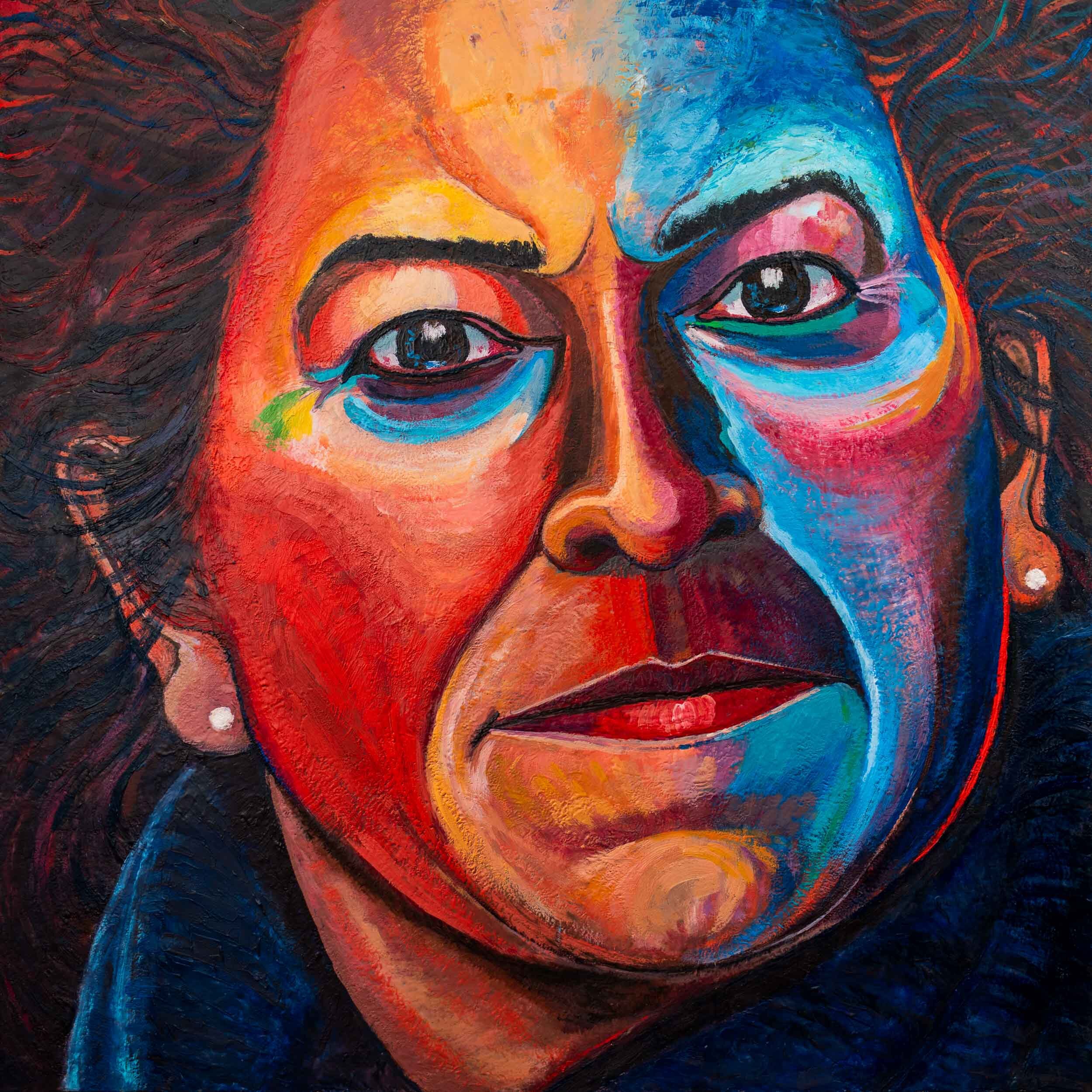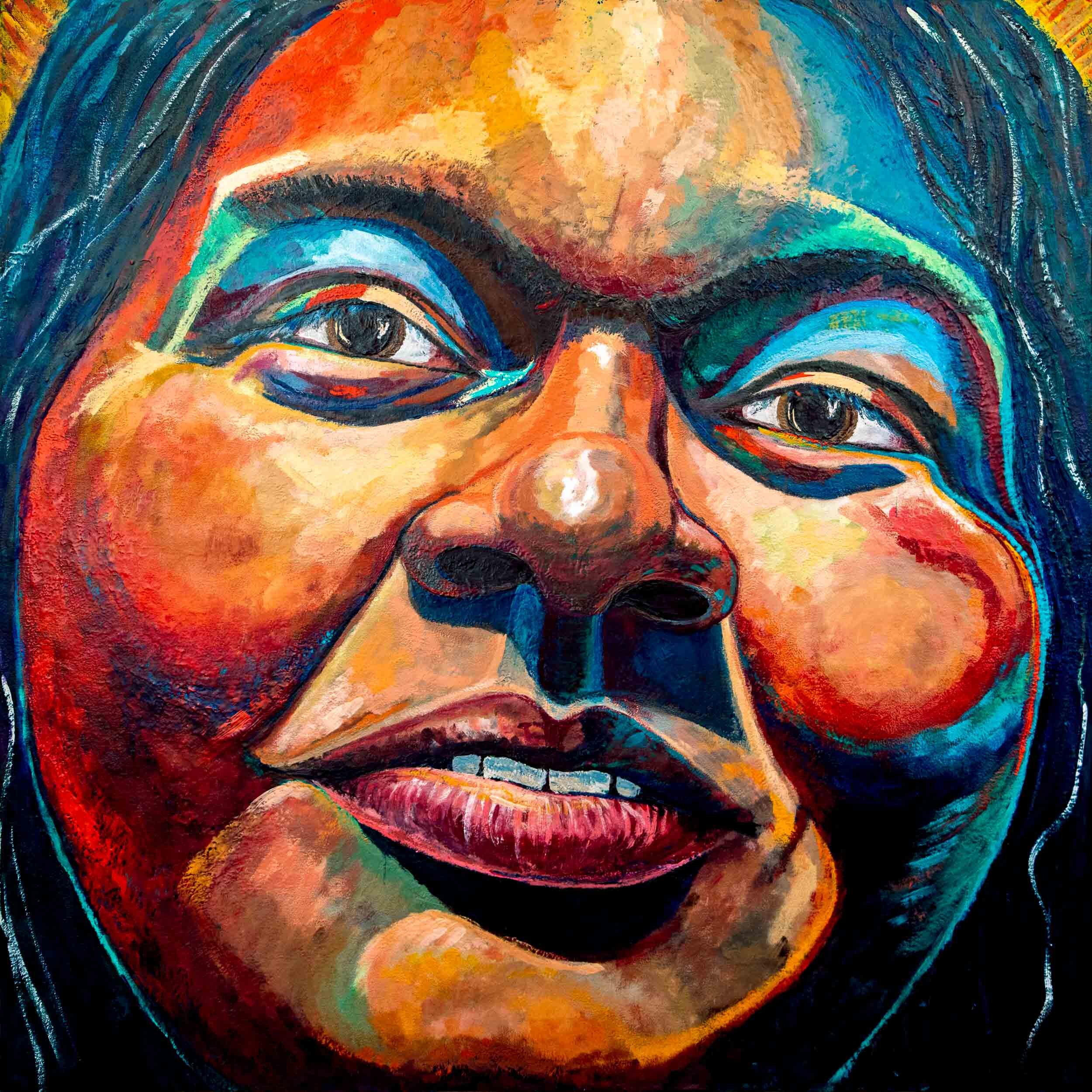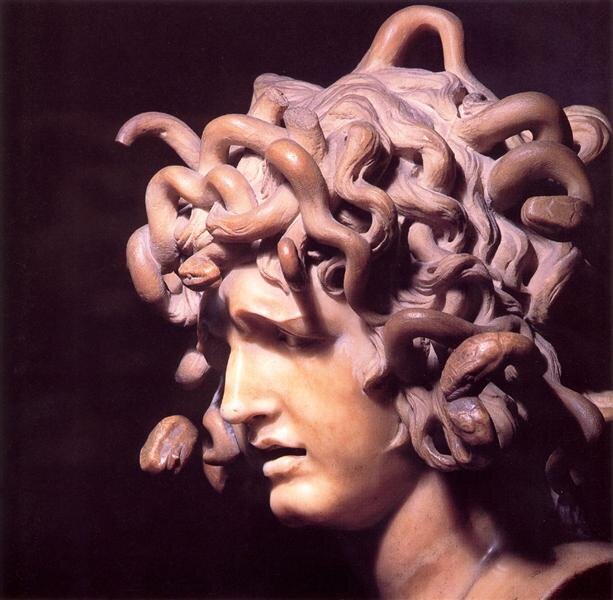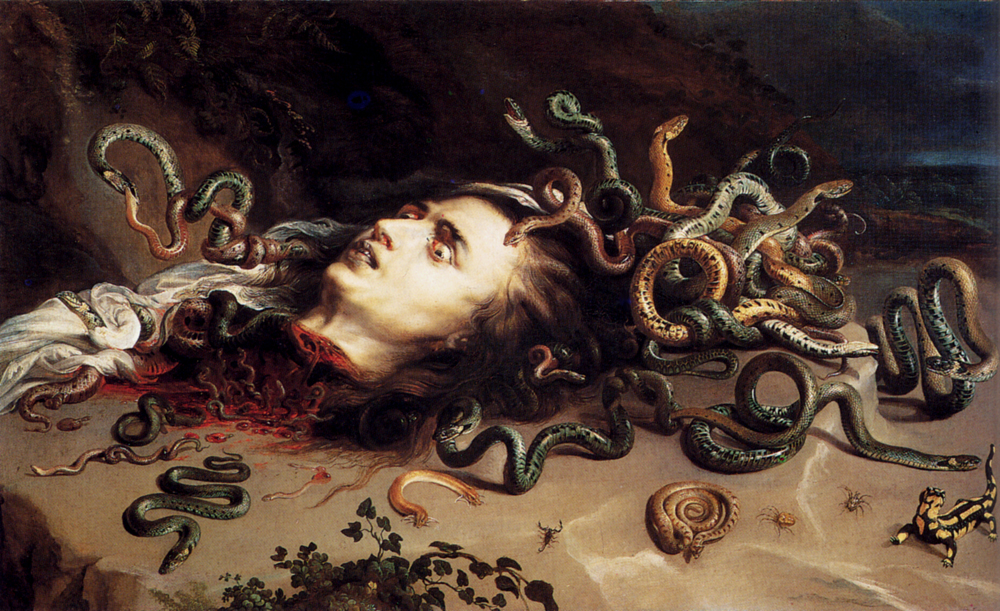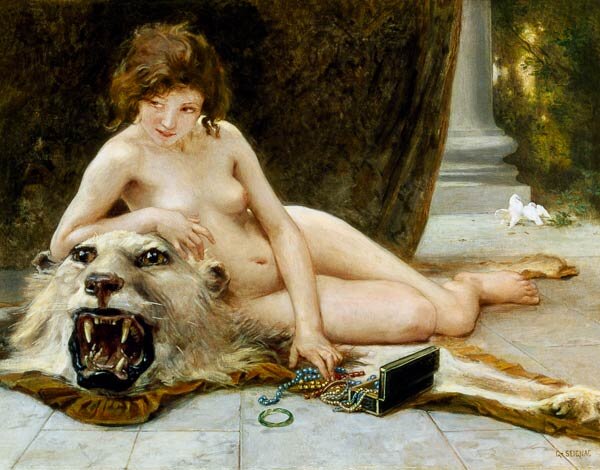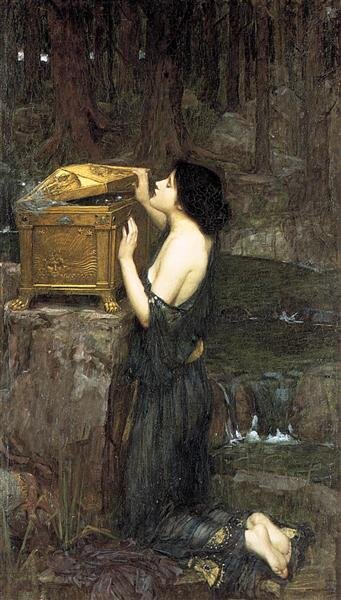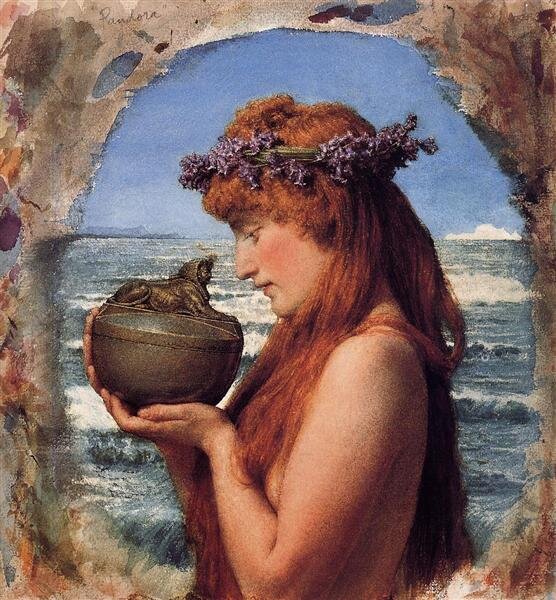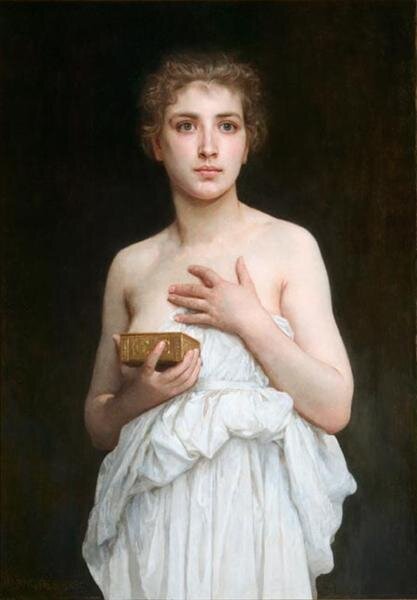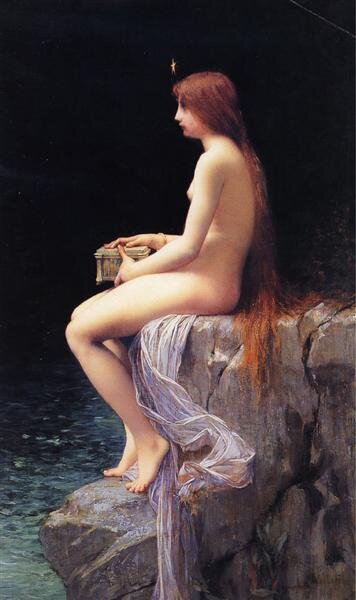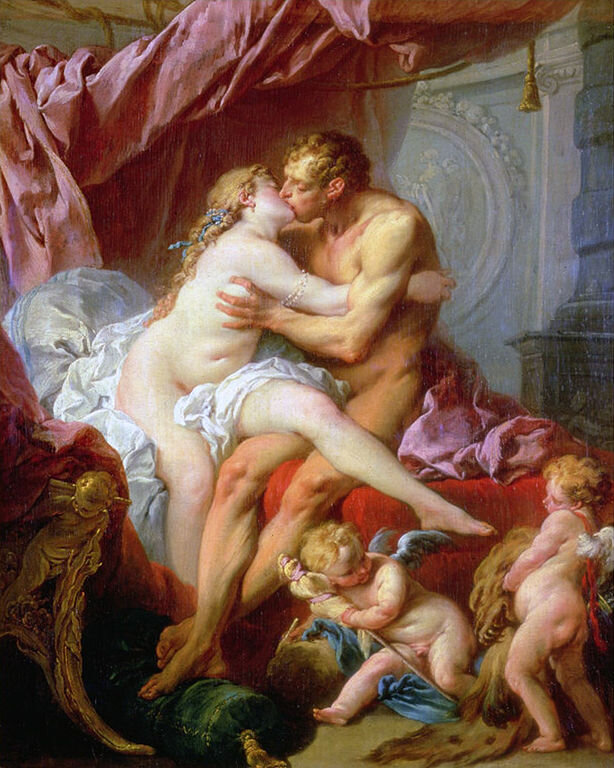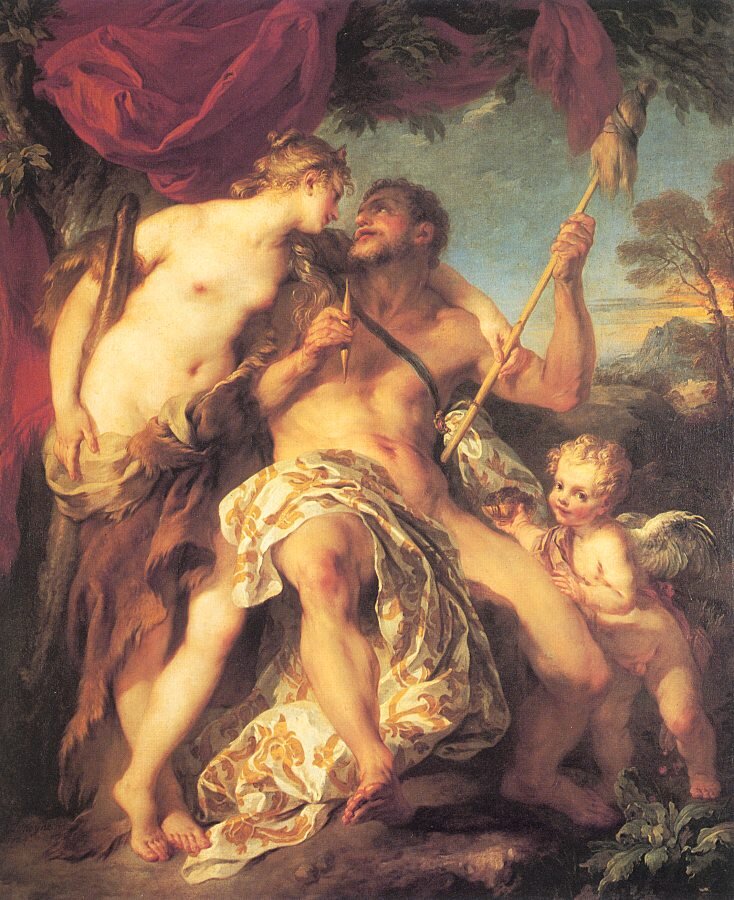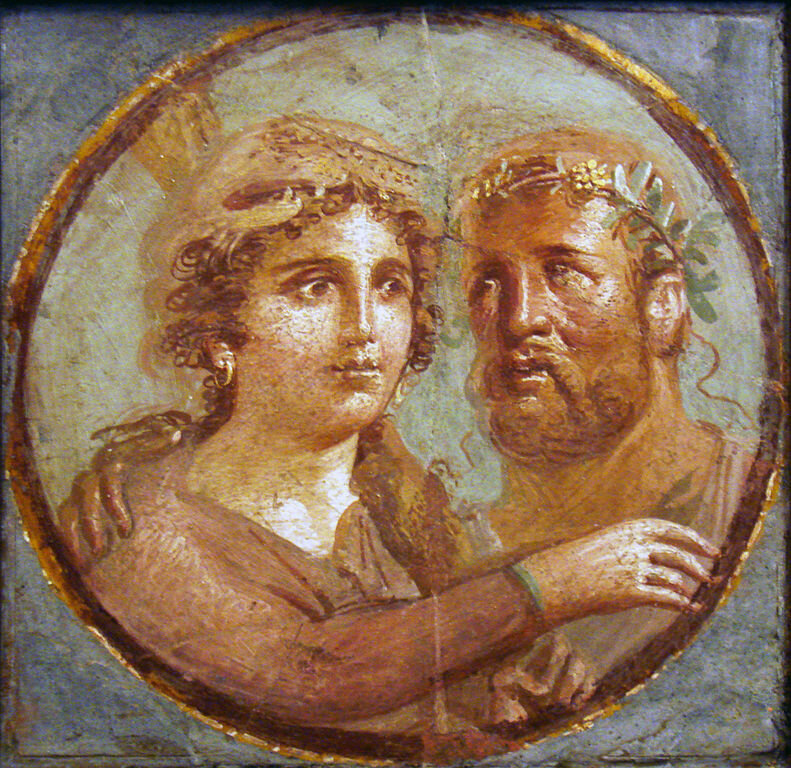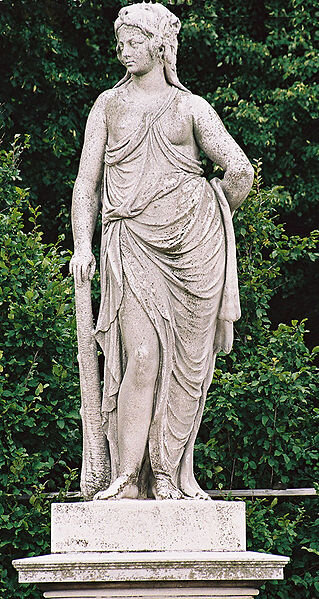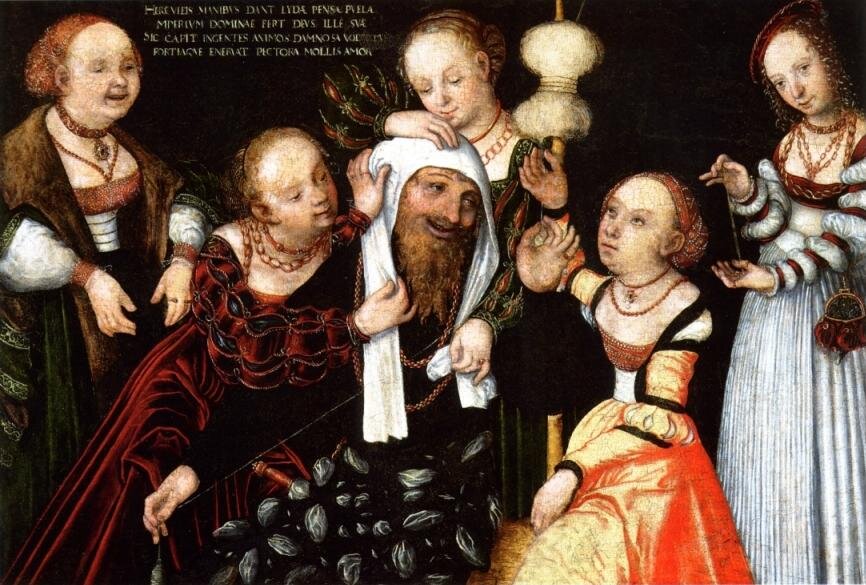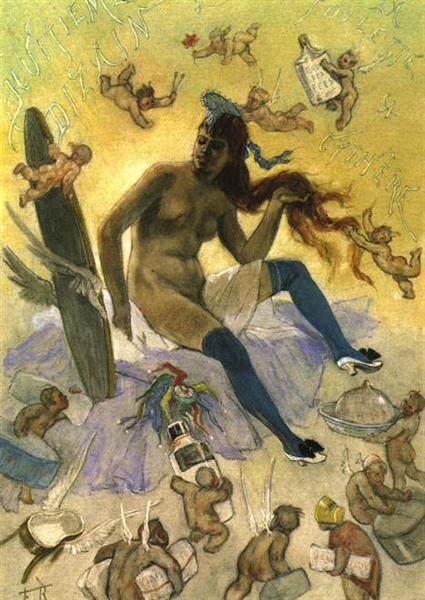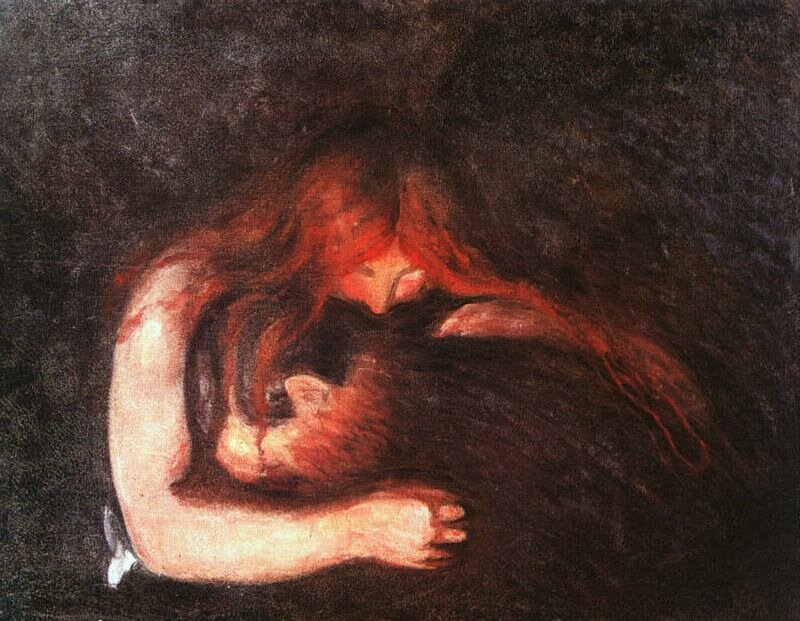Scary ladies
then & now
It is sad that strong powerful individuated women are invariably perceived as a threat.
Looking at the women in the artworks featured below, consider how the way we see women depicted might influence our beliefs and attitudes towards women today. Consider how this relates to urgent issues facing society today.
Contemporary women
Each of the women celebrated in Eyeing Medusa has challenged authority, asserted her case, and prevailed against opposition, stereotypes and societal expectations.
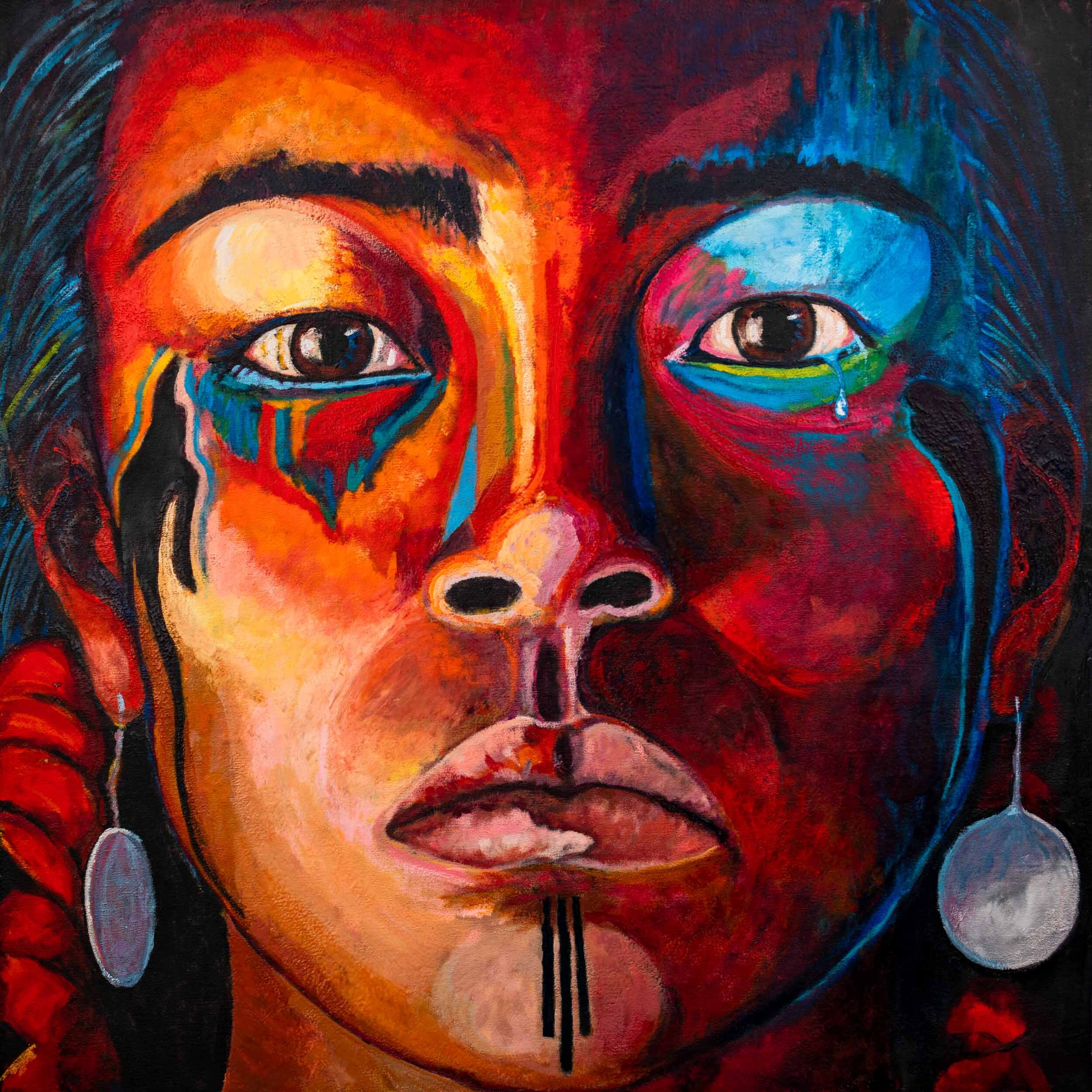
Amanta Scott, encaustic on canvas on panel, 36 x 36 inches / 98 x 98 x 5.75 cm (framed), Eyeing Medusa Series, 2019-2021, in private collection, Kingston, Ontario

Amanta Scott, 92x92 cm, encaustic on canvas on birch panel, Eyeing Medusa series, 2021

Amanta Scott, encaustic on canvas on birch panel, 40x40

Amanta Scott, encaustic on canvas on birch panel, 102x102cm, Eyeing Medusa series, 2020-2021
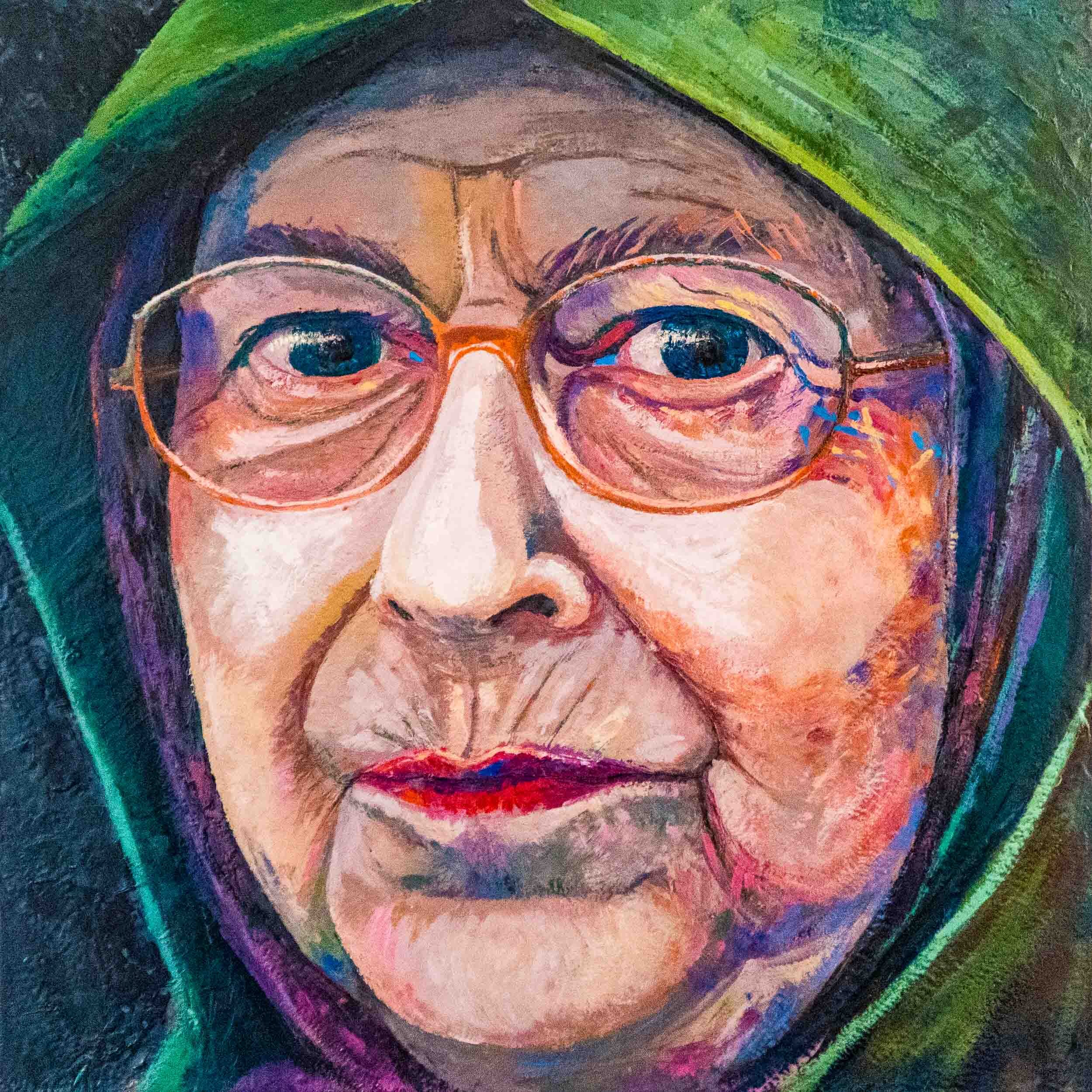
Amanta Scott, encaustic on canvas on birch panel, 76.2 x76.2 cm, Eyeing Medusa Series, 2021
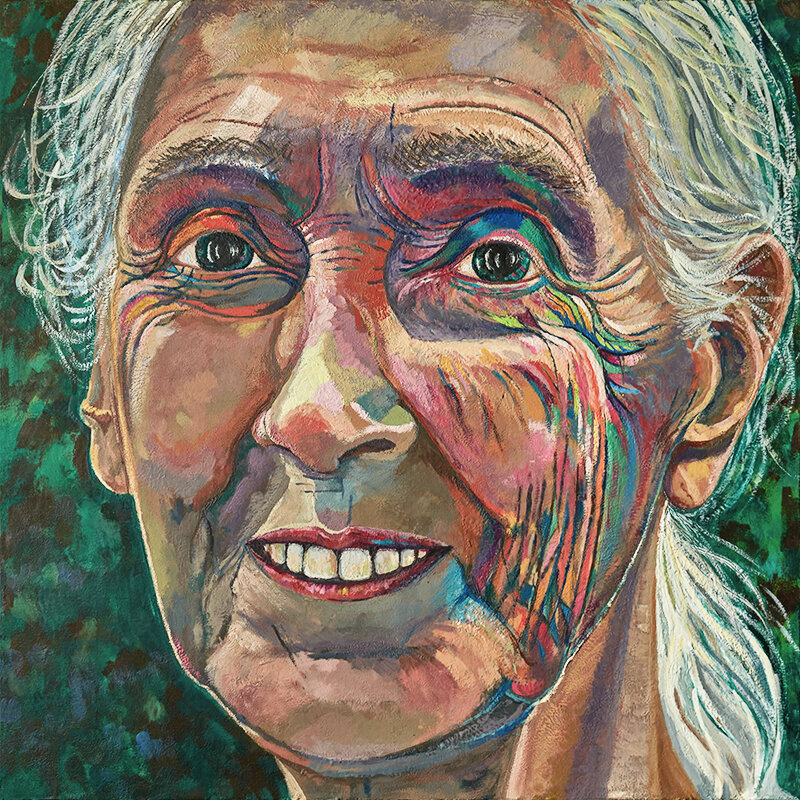
Amanta Scott, encaustic on canvas on panel, 92x92cm, 2019, in private collection, Toronto

Amanta Scott, encaustic on canvas on framed birch panel, 36x36 inches
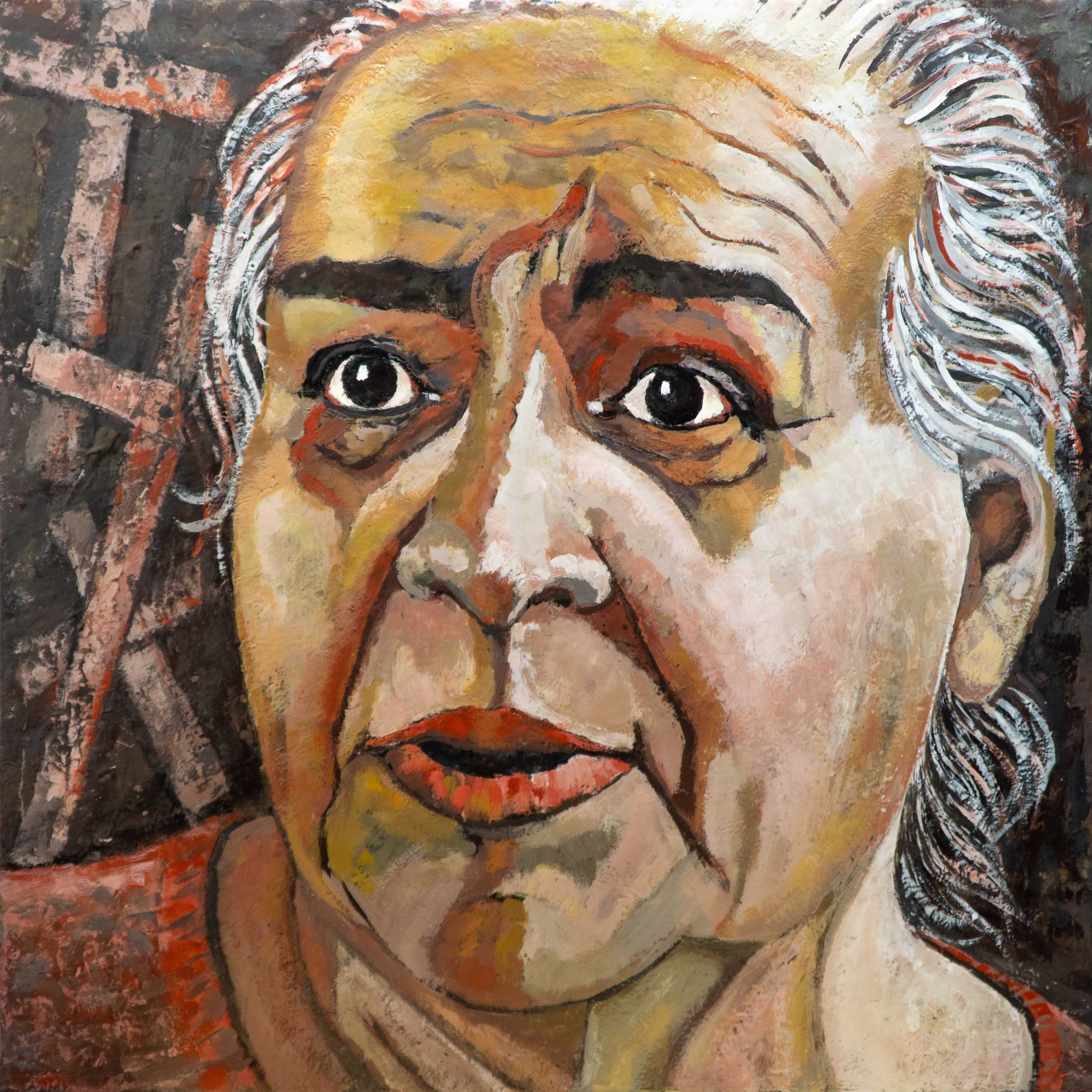
Amanta Scott, encaustic on canvas on cradled birch panel, 92 x 92 cm, Eyeing Medusa series

Amanta Scott, encaustic on canvas on panel, 102x102cm, 2020

Amanta Scott, encaustic on canvas on birch, 98x98x5.75 cm (framed), 2019-2021
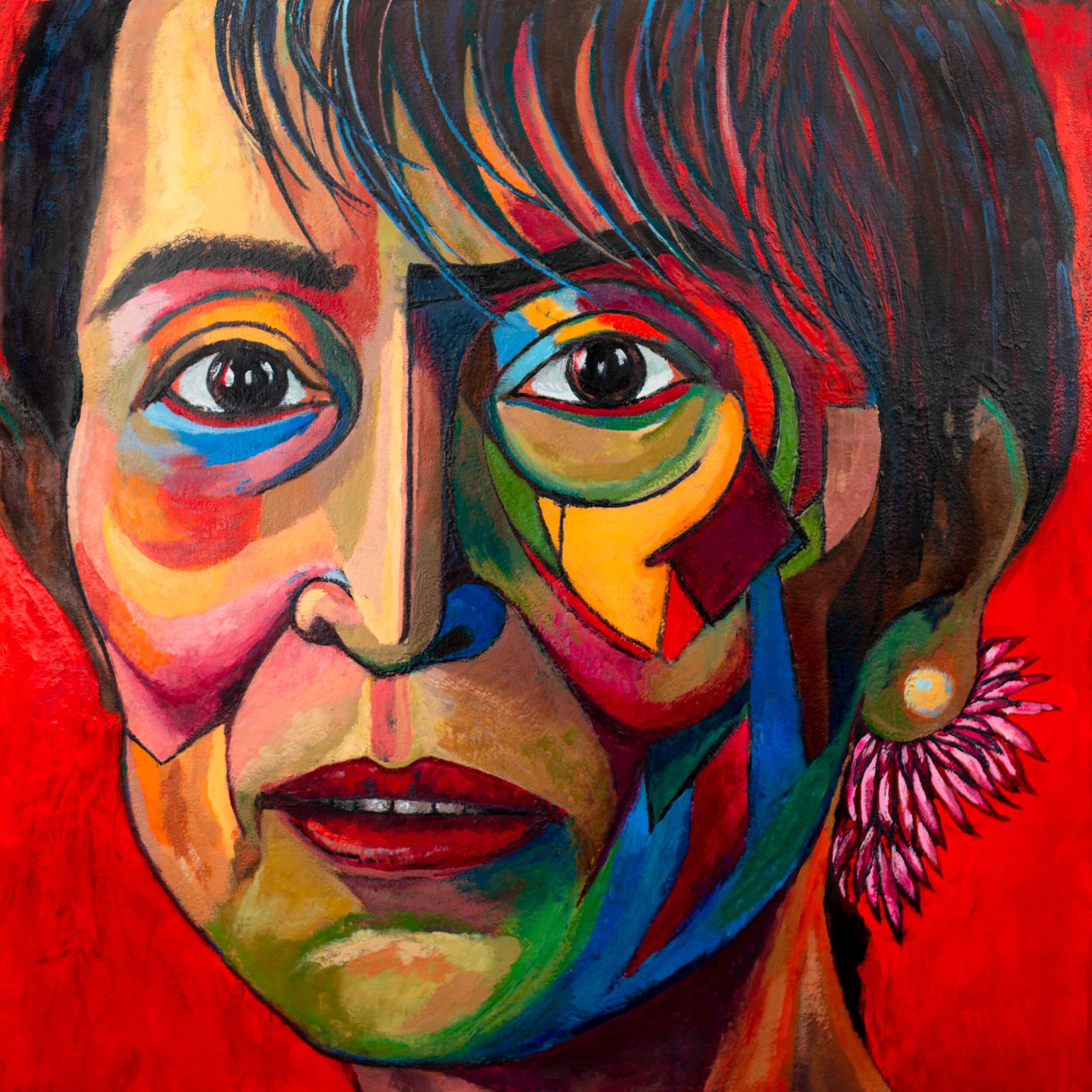
Amanta Scott, encaustic on canvas on panel, 92x92cm, 2019
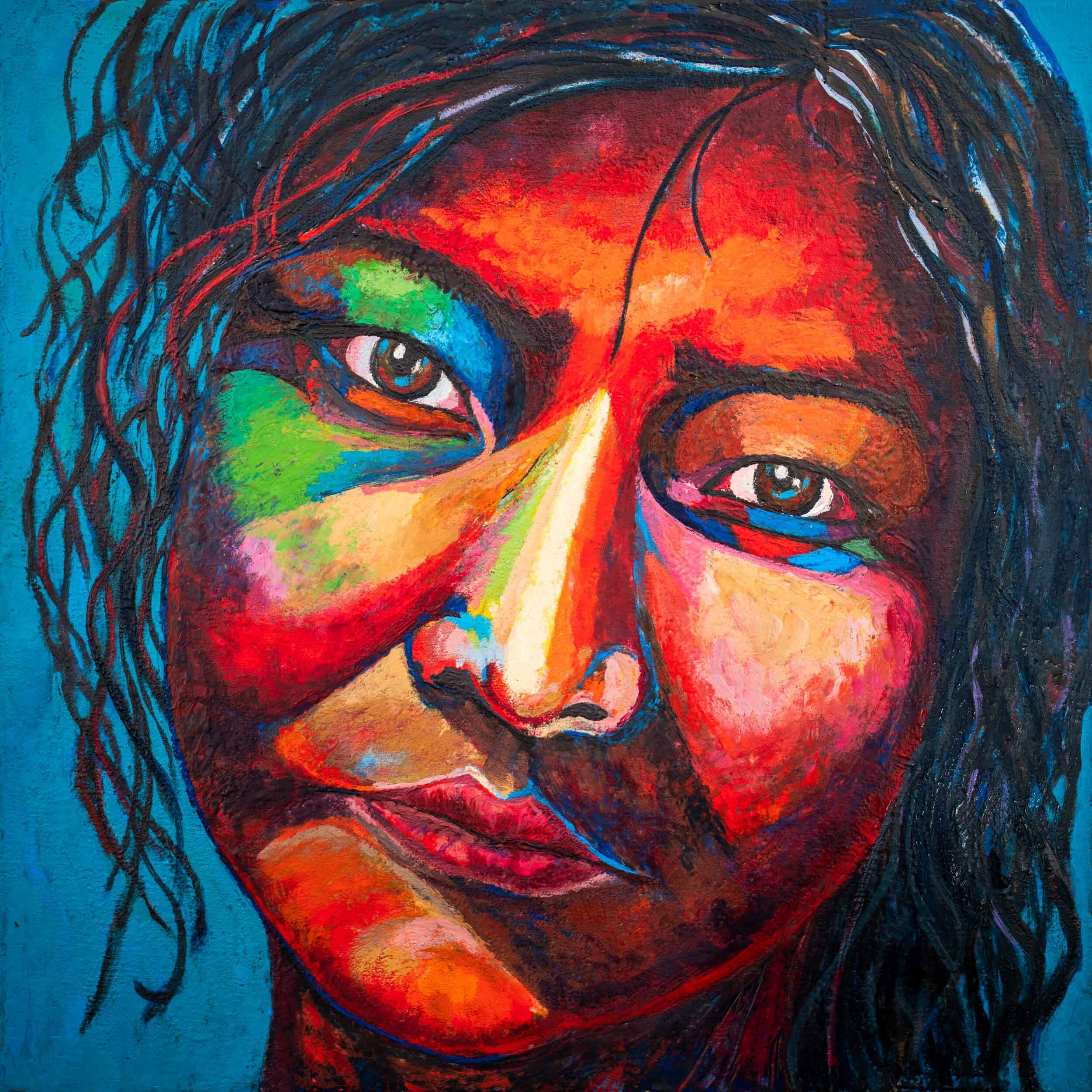
Amanta Scott, encaustic on canvas on panel, 61x61cm, 2019

Amanta Scott, encaustic on canvas on panel, 67.8x67.8 x 5.75 cm (framed), 2019 - 2021

Amanta Scott, encaustic on canvas on birch panel, 76.2 x 76.2 cm
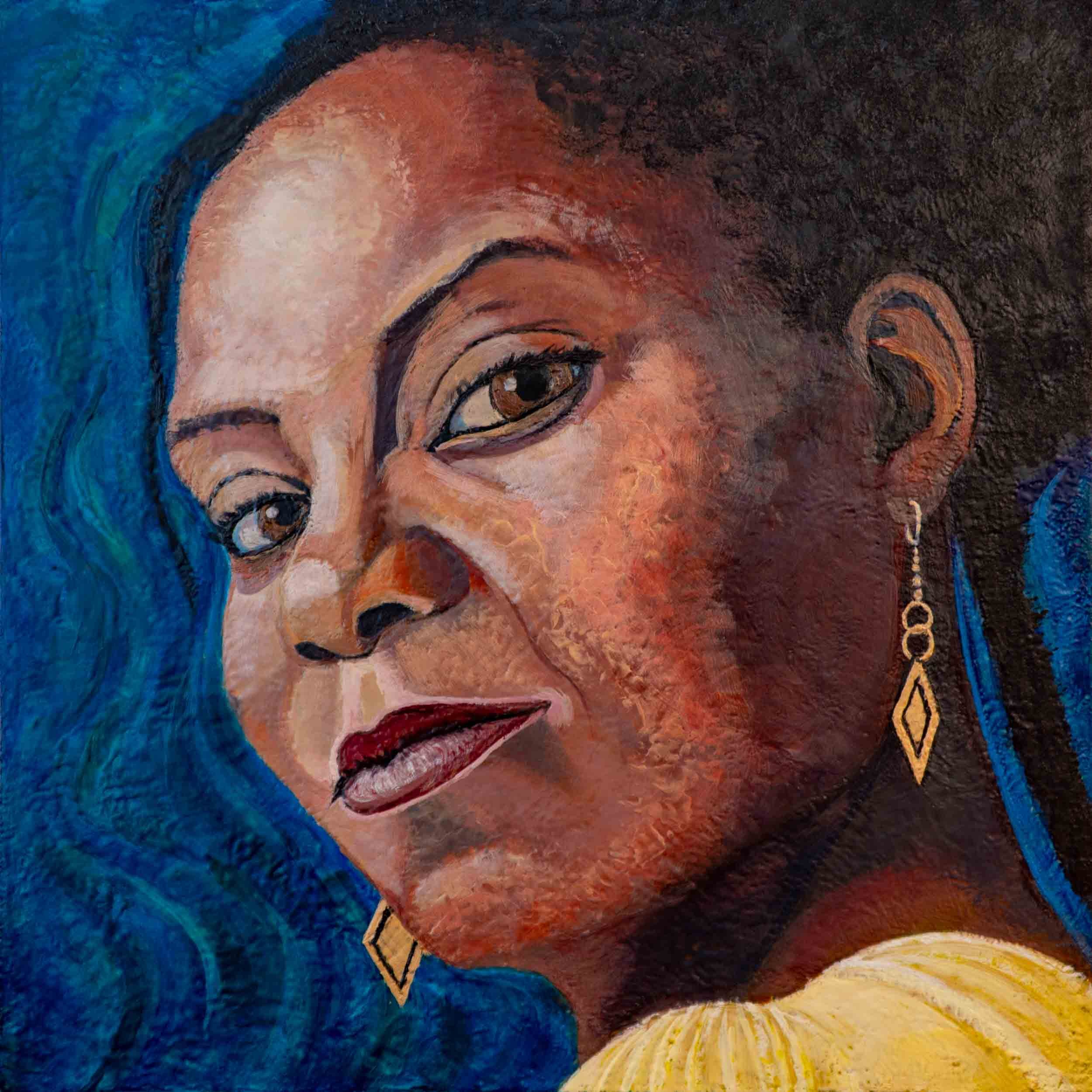
AmantaScott, encaustic on canvas on framed birch panel, 30 x 30 inches.

Amanta Scott, encaustic on canvas on panel, 102x102cm, 2020
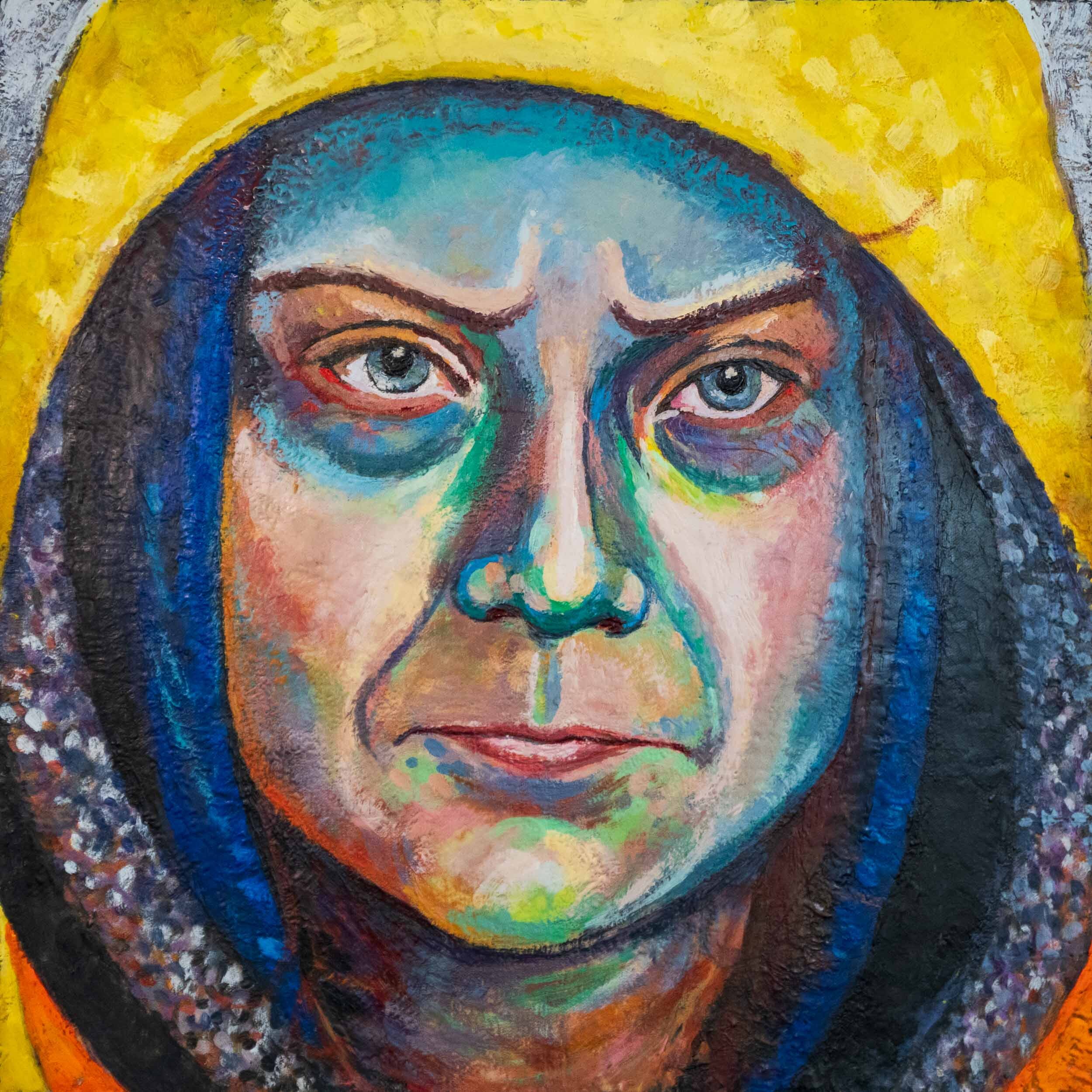
Amanta Scott, encaustic on canvas on panel, 53.5 x 53.5 x 5.75 cm (framed), 2019-2021

Amanta Scott, encaustic on canvas on panel, 92 x 92 cm, 2019

Amanta Scott, encaustic on canvas on panel, 92 x 92 cm, 2020

Amanta Scott, 76.2 x 76.2 cm, encaustic on canvas on birch panel, Eyeing Medusa Series, 2021

Amanta Scott, encaustic on canvas on birch panel, 102 x 102 cm, Eyeing Medusa Series, 2020-2021
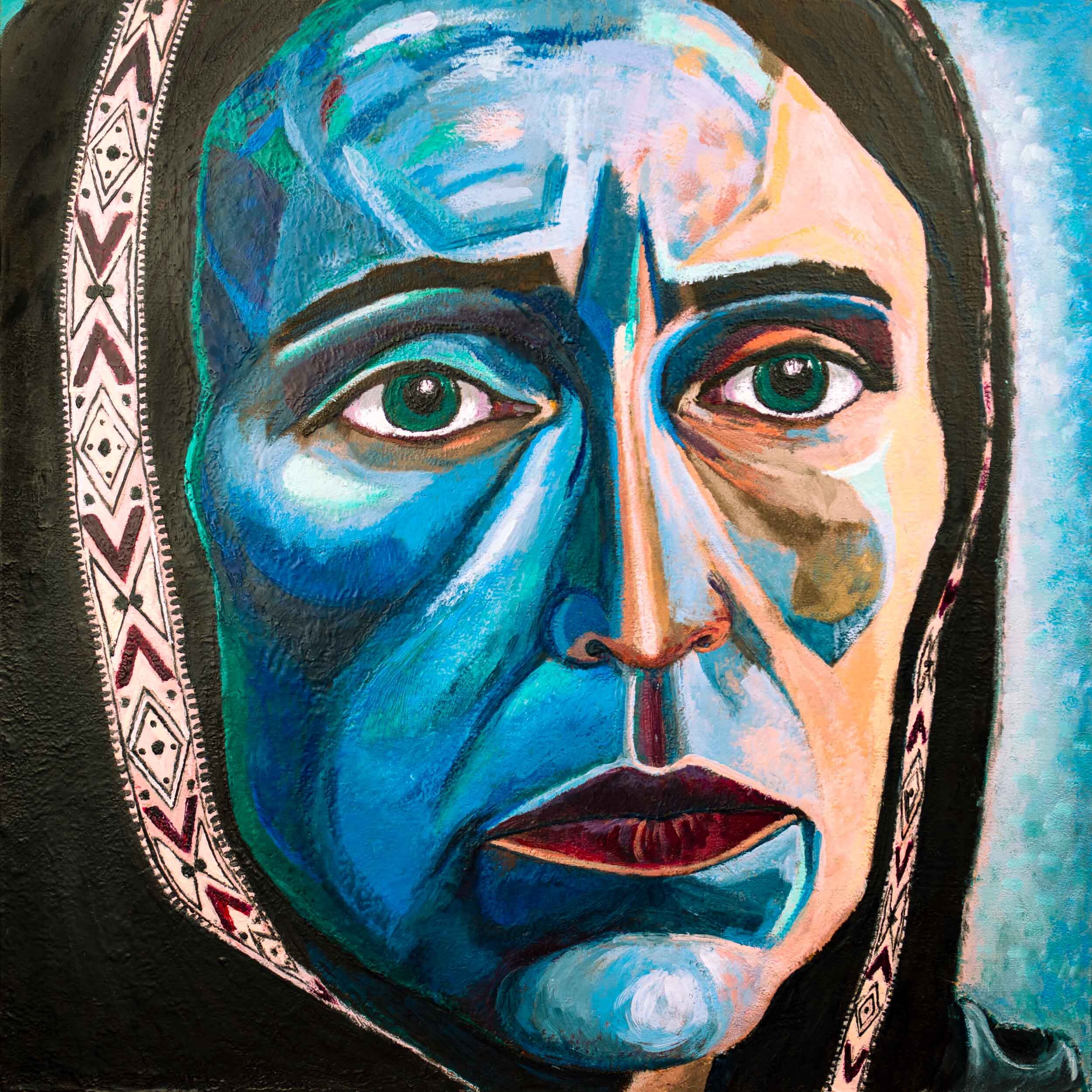
Amanta Scott, encaustic on canvas on panel, 92 x 92 cm, 2019

Amanta Scott, encaustic on canvas on birch panel, 92 x 92 cm, Eyeing Medusa series
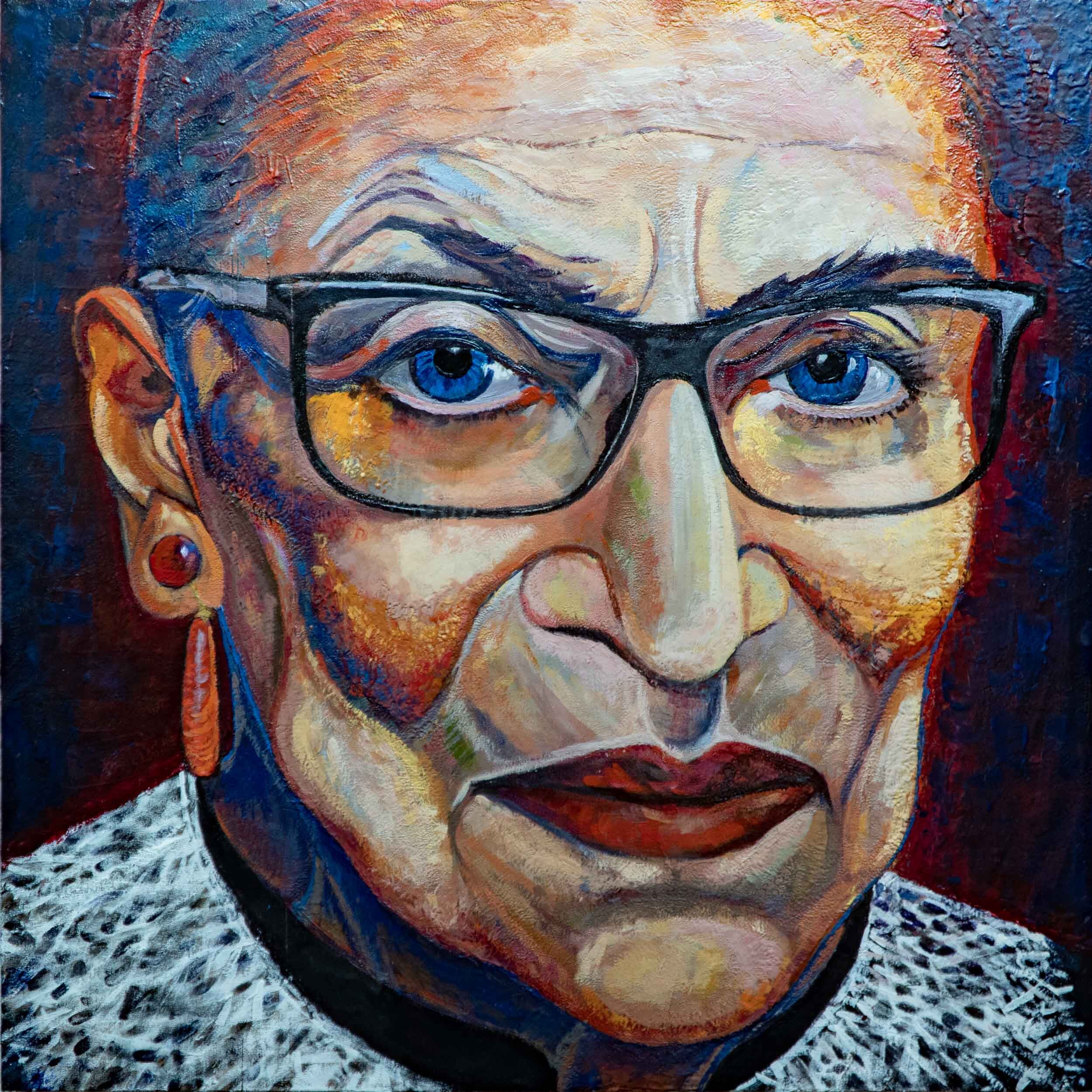
Amanta Scott, encaustic on canvas on birch, 102 x 102 cm, 2020
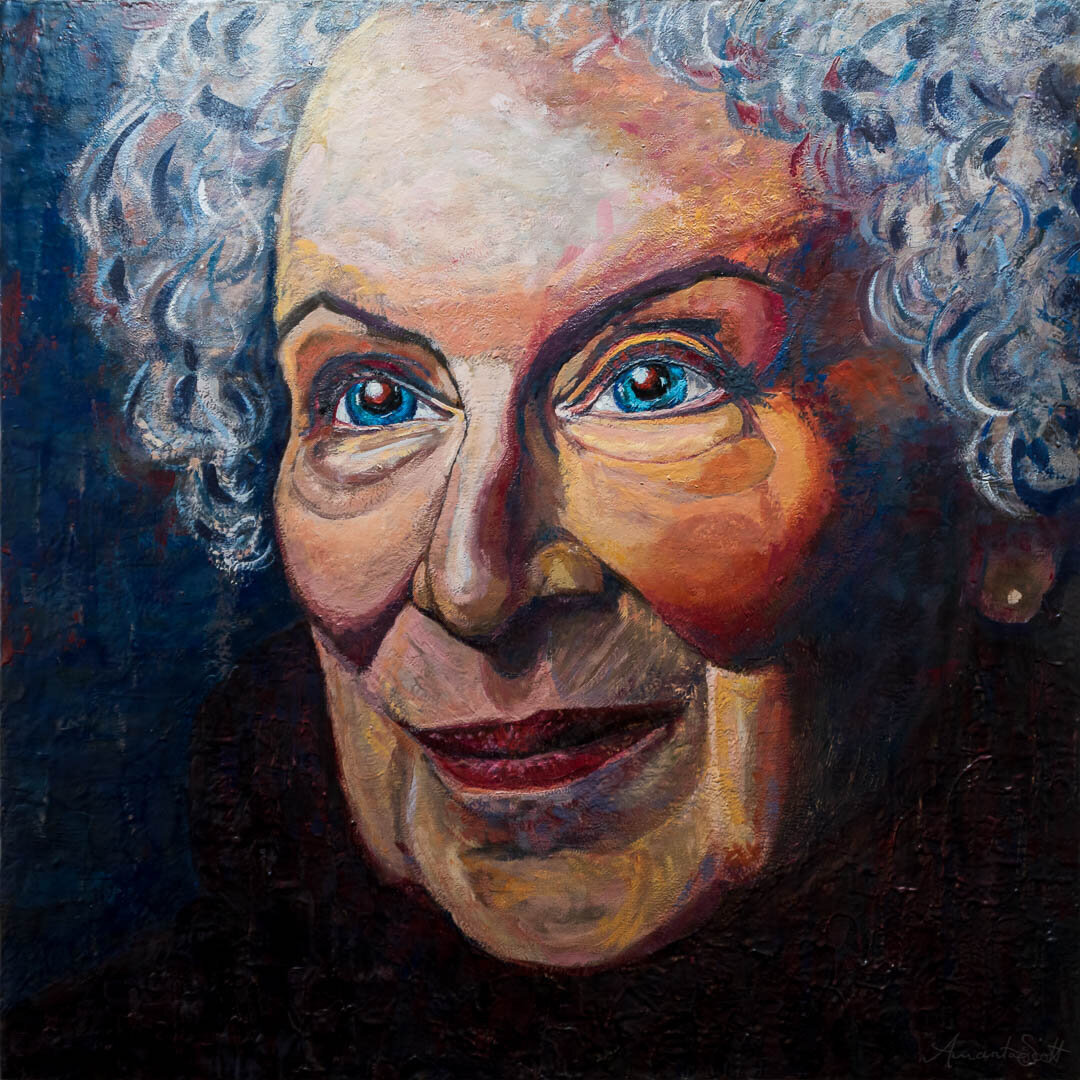
Amanta Scott, encaustic painting on canvas on panel, 108.5 x 108.5 x 5.75 cm (framed), Eyeing Medusa series, 2020-2021
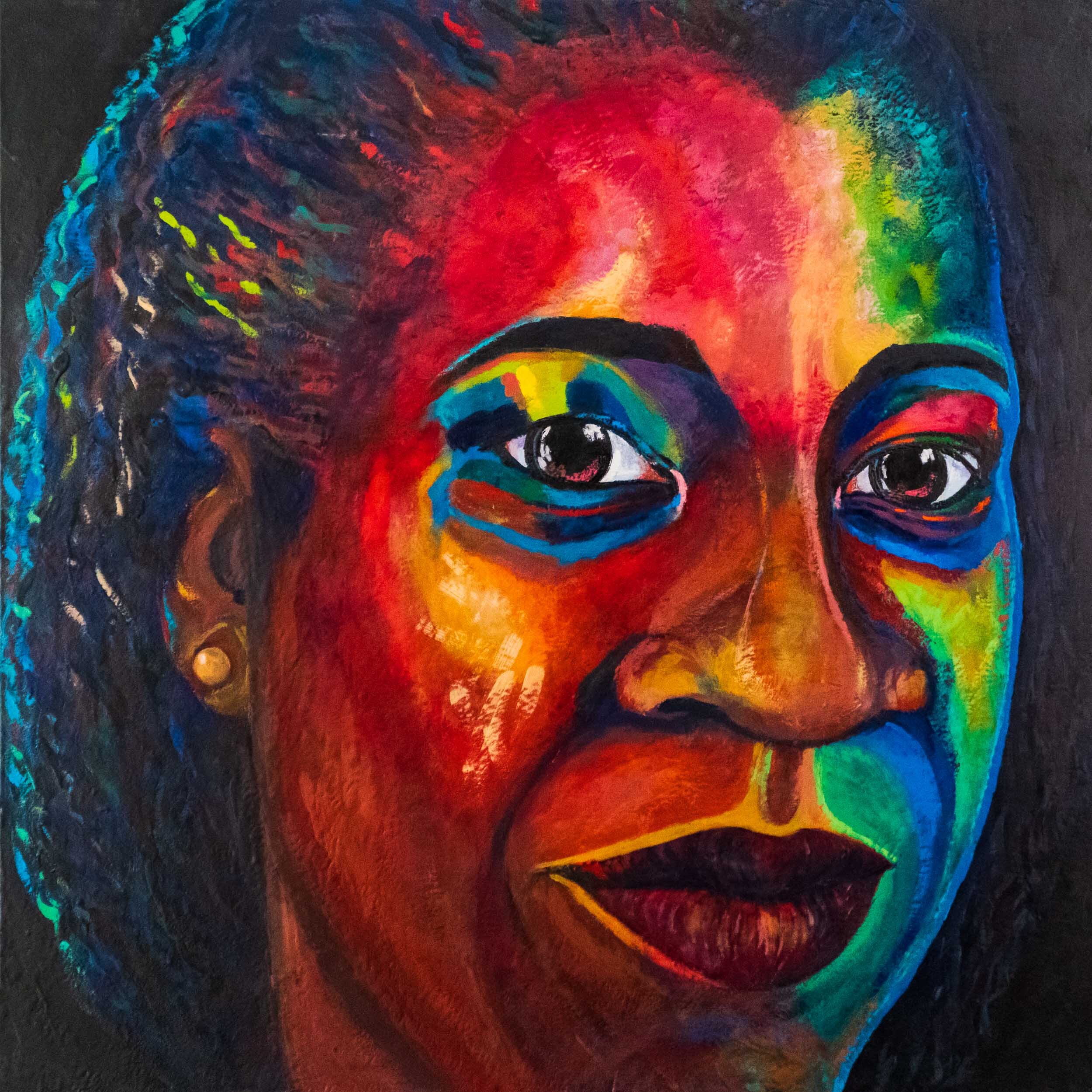
Amanta Scott, encaustic on canvas on panel, 108.5 x 108.5 x 5.75 cm (framed), 2019-2021
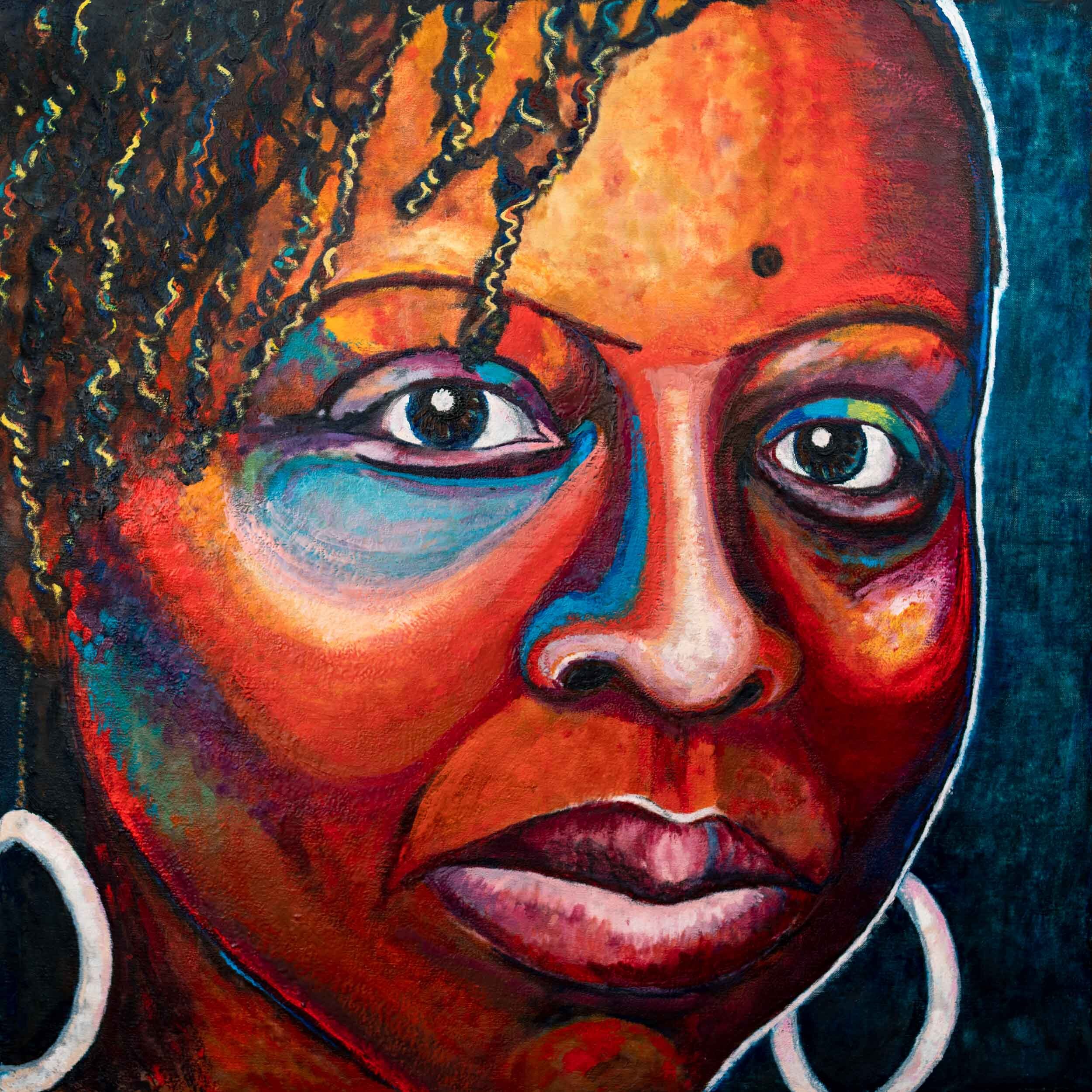
Amanta Scott, encaustic on canvas on panel, 92 x 92 cm, 2019

Amanta Scott, encaustic on canvas on birch, 102 x 102 cm, 2020

Amanta Scott, encaustic on canvas on panel, 102 x 102 cm, 2020

Amanta Scott, encaustic on canvas on panel, 102 x 102 cm, Eyeing Medusa series, 2020

Amanta Scott, encaustic on canvas on panel, 102 x 102 cm, 2020
Because women’s physical appearances are so often used as a way to demean them, and women’s value is so often tied to their looks— these painting focus solely on the faces, so that the viewer may centre entirely on who she is and why she matters.
archetypal women
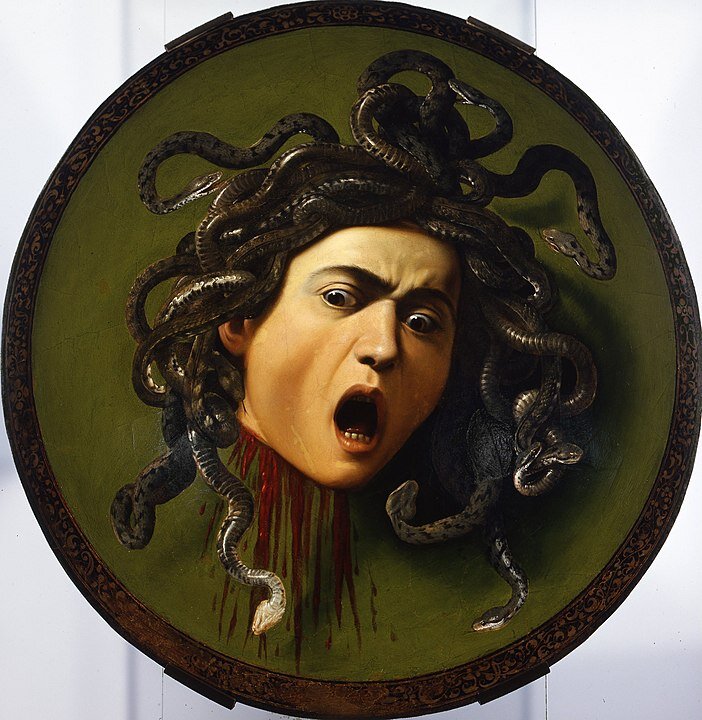
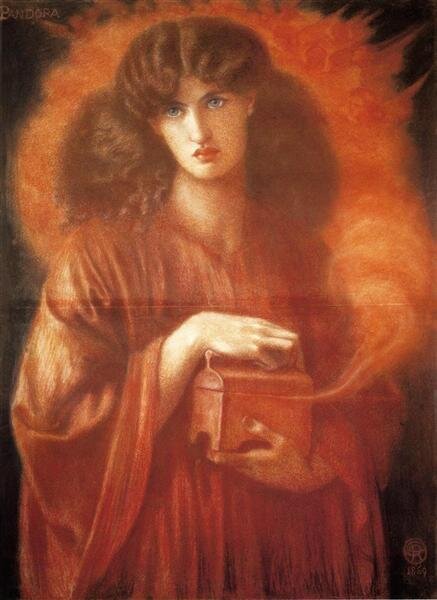
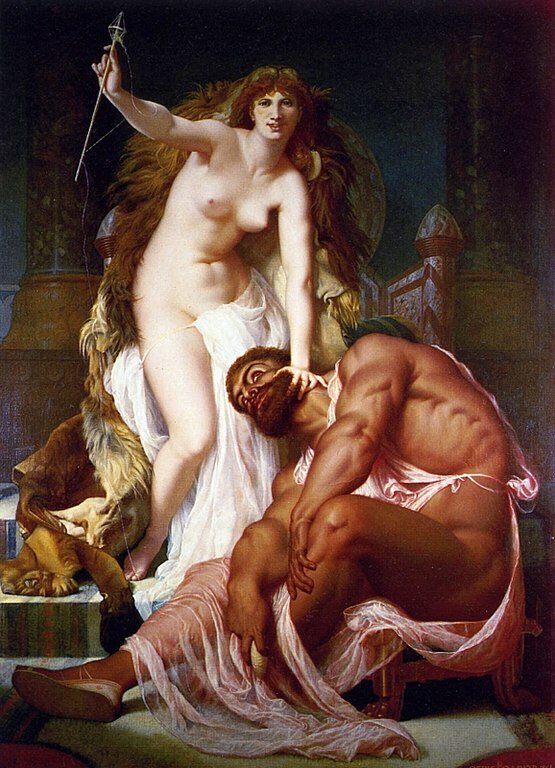
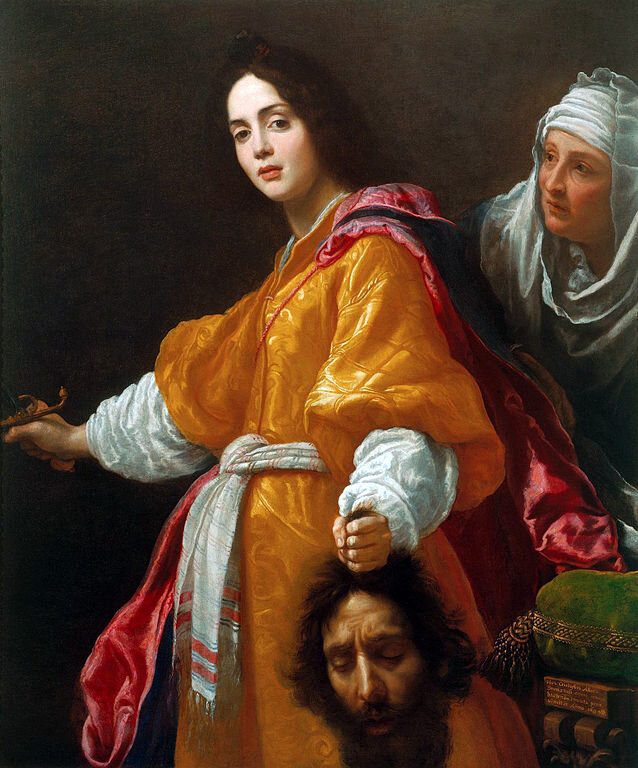
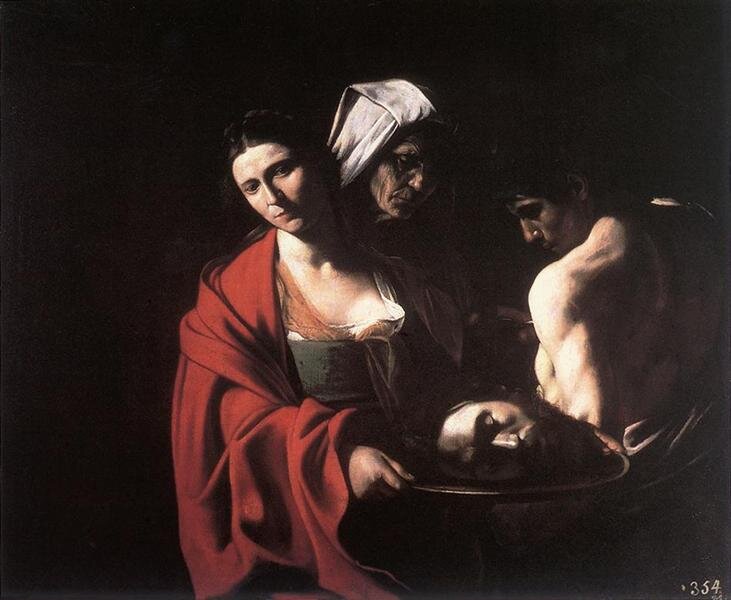
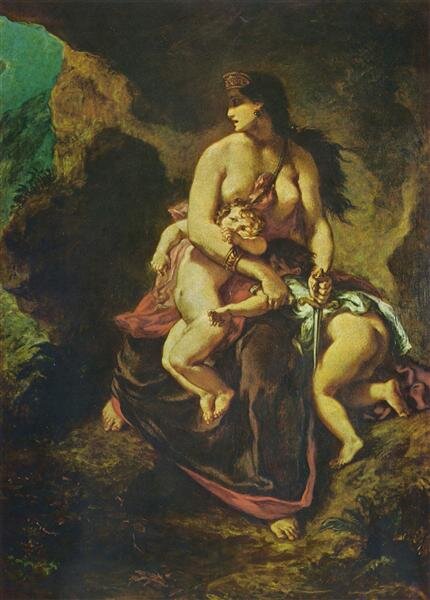
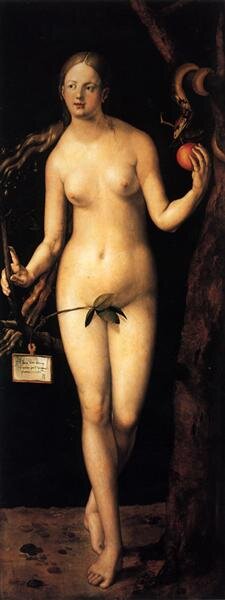
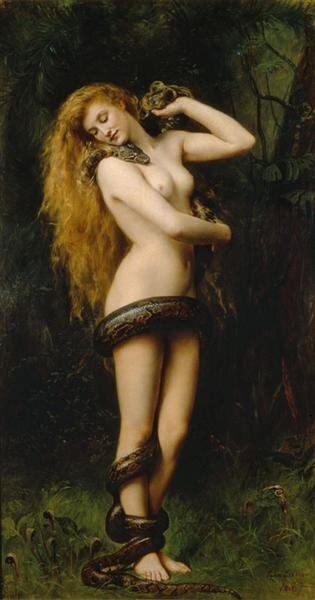
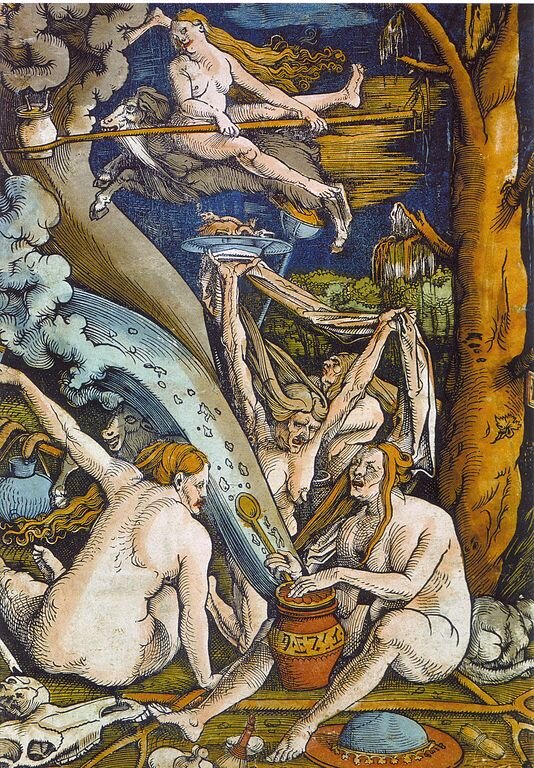
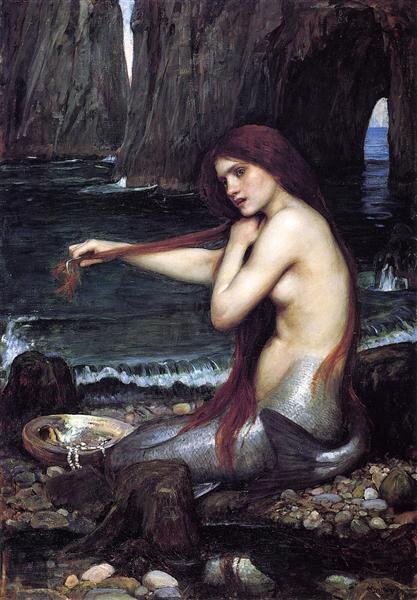
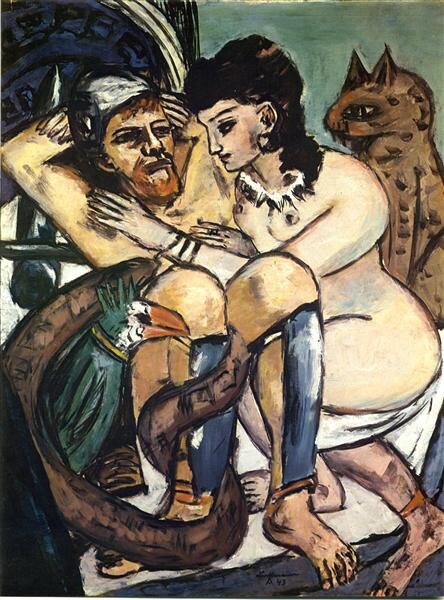
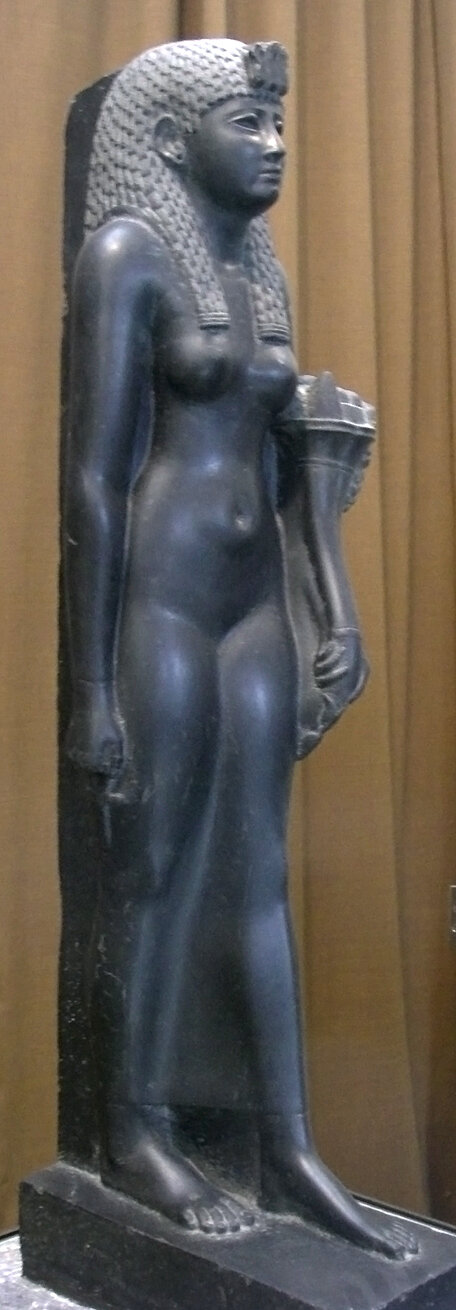
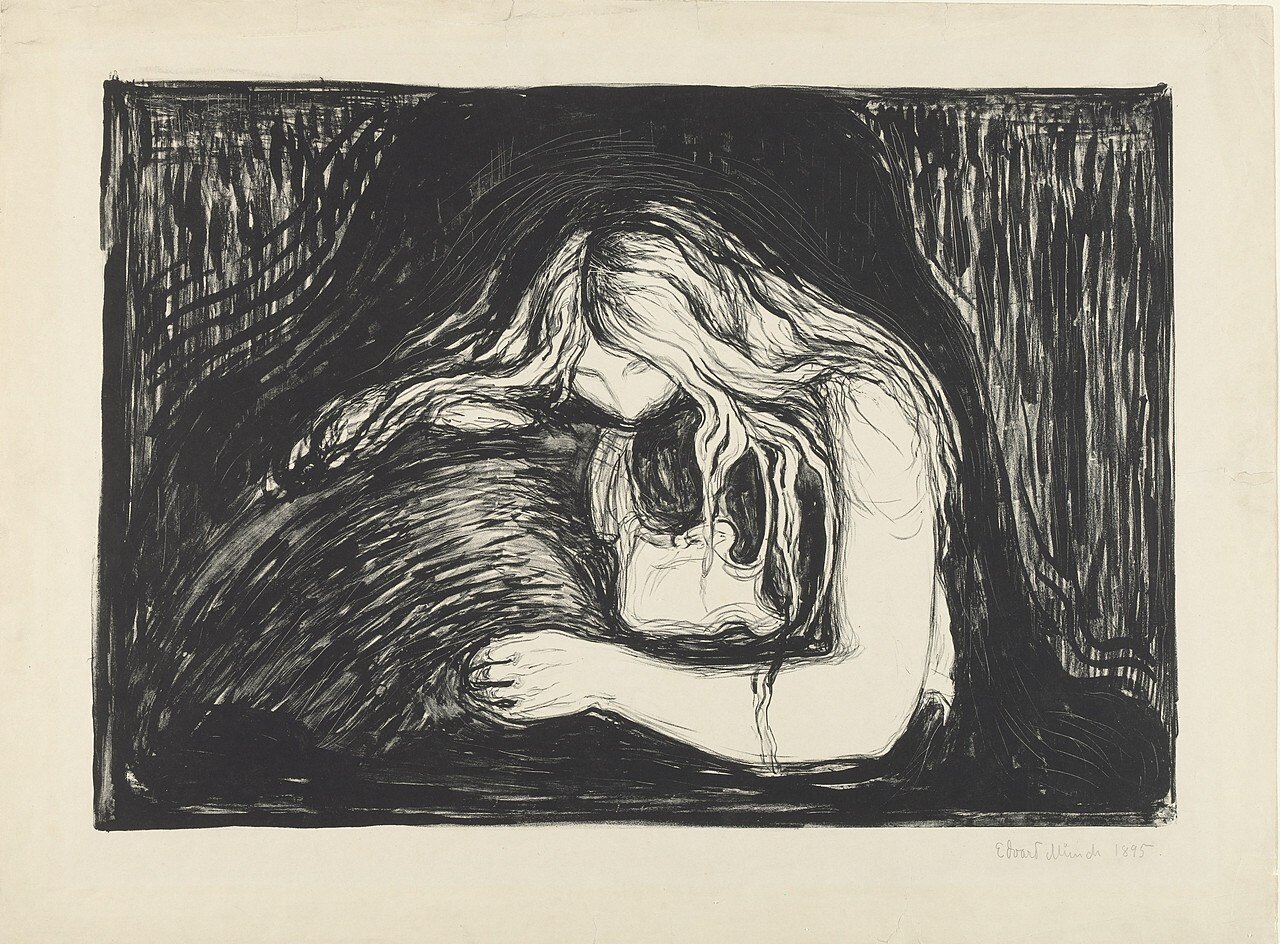
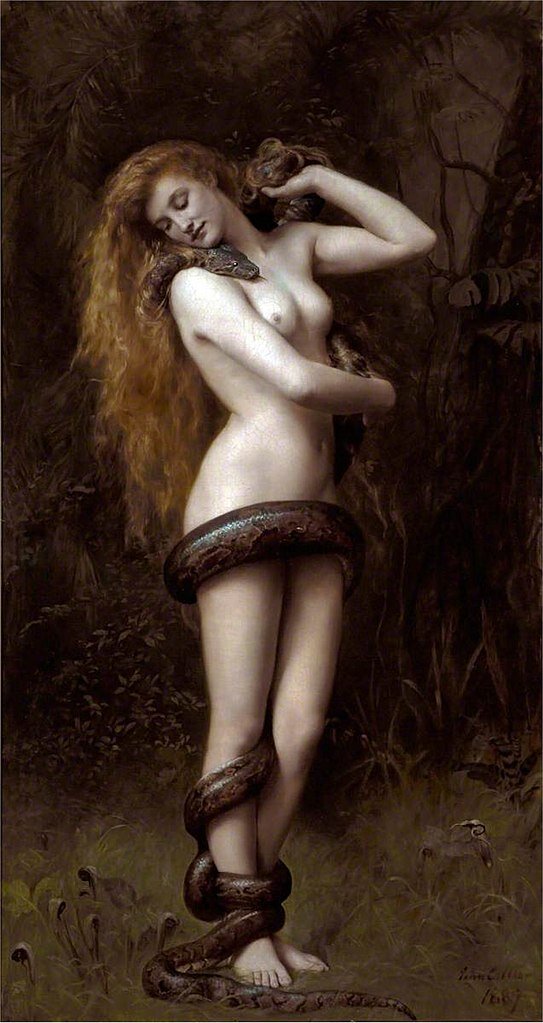
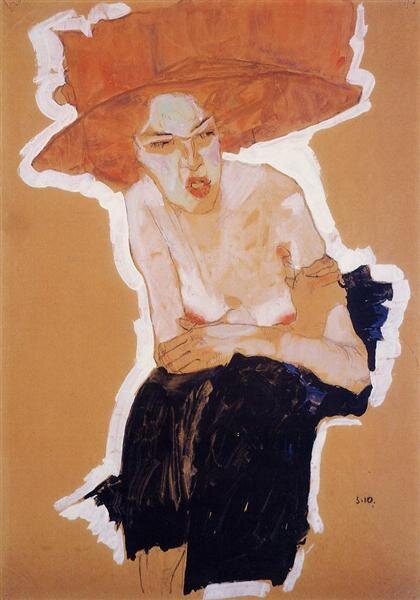
medusa
The archetypal “angry woman”, Medusa has been adopted as a symbol of female rage, and the personification of female fury. Today Medusa is largely known as a hideous female monster with snakes for hair whose fury and frightful eyes will turn viewers to stone if they so much as glance at her. Medusa has been depicted as either a Gorgon monster or a beautiful priestess, who was raped (or sexually active); torn from her spiritual path, blamed for being raped (or for engaging in sex); then transformed into a monster, banished from her homeland and subsequently beheaded.
Today Medusa represents a woman with a terrifying potential power to emasculate men.
Almost every strong woman, particularly those running for or achieving political office or fame, has been equated Medusa or photoshopped with snakes for hair, including: Marie Antoinette, Hilary Clinton, Angela Merkel, Theresa May, Condoleezza Rice, Madonna, Nancy Pelosi, Oprah Winfrey, Rihanna and Elizabeth Warren.
“Medusa remains the symbol of the quintessential nasty woman that must be vanquished in order to restore the balance of power.”
pandora
Pandora was the first human woman created by Hephaestus on the instructions of Zeus. Pandora opened a jar, commonly referred to "Pandora's box", thereby releasing all the evils of humanity.
Omphale
In Greek mythology, Omphale was the queen of Lydia in Asia Minor, who bought Heracles as a slave, from the god Hermes. Omphale was the daulghter of Lardanus, king of Lydia or a river-god; and became the wife of Tmolus, mountain king of Lydia. After Tmolus was gored by a bull she continued to reign on her own. The Lydians were considered barbarians by the Greeks. It was considered shameful for Heracles to serve a woman in this fashion. Many stories refer to Heracles being forced to do women’s work and wear women’s clothing and helping Omphale and her maidens while spinning.
Sirens
Vampires
References
- https://www.forbes.com/sites/drsarahbond/2017/11/23/rehabilitating-medusa-powerful-women-sexism-and-reading-mary-beards-new-book/?sh=76a9e1ed4c43
- https://www.artsy.net/article/artsy-editorial-depictions-medusa-way-society-views-powerful-women
- https://www.theatlantic.com/entertainment/archive/2016/11/the-original-nasty-woman-of-classical-myth/506591/
- https://hyperallergic.com/432102/dangerous-beauty-medusa-in-classical-art-metropolitan-museum/



